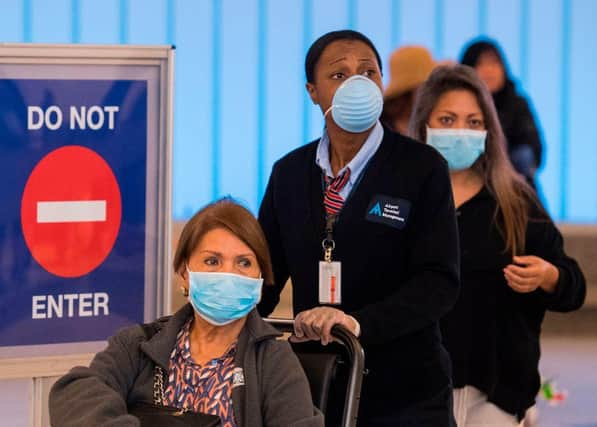When can I travel to the USA? Latest FCO guidance as Donald Trump unveils plans for reopening states - and UK extends lockdown


Despite claiming earlier in the week that he had ‘total authority’ on the reopening of the country, new guidelines allow the governor of each state to implement the opening strategy whenever they deemed it safe to do so.
The 45th President said: “We are not opening all at once, but one careful step at a time. Some states will be able to open up sooner than others. Some states are not in the kind of trouble that others are in.”
Advertisement
Hide AdAdvertisement
Hide AdThe country’s immediate strategy does not yet include the reopening of its borders to European visitors, however.
A ban on UK citizens travelling to the States has been in place since March 16, with only a specific number of exceptions in place.
What's the 'official' travel advice?
A statement from the Foreign and Commonwealth Office reads: “Cases of coronavirus (COVID-19) have been confirmed in the USA. The US authorities have introduced a number of measures to limit the spread of the virus.
“As of 16 March, it will not be possible for many British nationals to enter the USA, except for in a number of specific categories.
“Those who are able to enter the USA from the UK by air will be required to do so through one of 13 designated USA airports and being asked to self-isolate for 14 days.”
The FCO currently advise against all non-essential travel outside the UK.
A genral statement reads: “As countries respond to the COVID-19 pandemic, including travel and border restrictions, the FCO advises British nationals against all but essential international travel.
“Any country or area may restrict travel without notice. If you live in the UK and are currently travelling abroad, you are strongly advised to return now, where and while there are still commercial routes available. Many airlines are suspending flights and many airports are closing, preventing flights from leaving.”
What did President Trump say?
Advertisement
Hide AdAdvertisement
Hide AdSpeaking at his daily press briefing on Thursday the US President did rnot give any indication of when a travel ban to the country might be lifted.
He said: “As we begin a science-based reopening we must be vigilant in blocking the foreign entry of the f virus from abroad. Border controls, travel limitations and other restrictions on entry are more important than ever to keep the virus in check and allow Americans to get back to work.
On the government’s exit strategy he said: “Healthy Americans will now be able to return to work as individual conditions allow. Vulnerable individuals will be protected. (A certain level of testing and hospital capacity must be met before advancing to each phase.
“This is a gradual process. As the caseload in a state continues to go down restrictions can be eased and called off. ‘If the virus returns in the fall, as some scientists think it may, these guidelines will ensure our country is up and running so we can put it out quickly.”
Coronavirus: the facts
Coronavirus: The Facts
COVID-19 is a respiratory illness that can affect lungs and airways. It is caused by a virus called coronavirus and is spread primarily through droplets generated when an infected person coughs or sneezes, or through droplets of saliva or discharge from the nose.
What are the symptoms?
The NHS states that you should not leave the home if you have either:
• a high temperature – this means you feel hot to touch on your chest or back (you do not need to measure your temperature)
• a new, continuous cough – this means coughing a lot for more than an hour, or 3 or more coughing episodes in 24 hours (if you usually have a cough, it may be worse than usual)
What should I do if I feel unwell?
Advertisement
Hide AdAdvertisement
Hide AdDon’t go to your GP but instead look online at the coronavirus service that can tell you if you need medical help and what to do next. Only call 111 if you cannot get help online.
What precautions can be taken?
Washing your hands with soap and water thoroughly. The NHS also advises to cover your mouth and nose with a tissue or your sleeve (not your hands) when you cough or sneeze; put used tissues in the bin immediately and try to avoid close contact with people who are unwell. Also avoiding touching eyes, nose and mouth unless your hands are clean.
When can I go outside?
The Government has put the UK into lockdown and instructed everyone to stay at home. You should only leave your home for very limited purposes:
• shopping for basic necessities, for example food and medicine, which must be as infrequent as possible
• one form of exercise a day, for example a run, walk, or cycle – alone or with members of your household
• any medical need, including to donate blood, avoid or escape risk of injury or harm, or to provide care or to help a vulnerable person
• travelling for work purposes, but only where you cannot work from home
However, these reasons are exceptions – even when doing these activities, you should be minimising time spent outside of the home and ensuring you are 2 metres apart from anyone outside of your household.